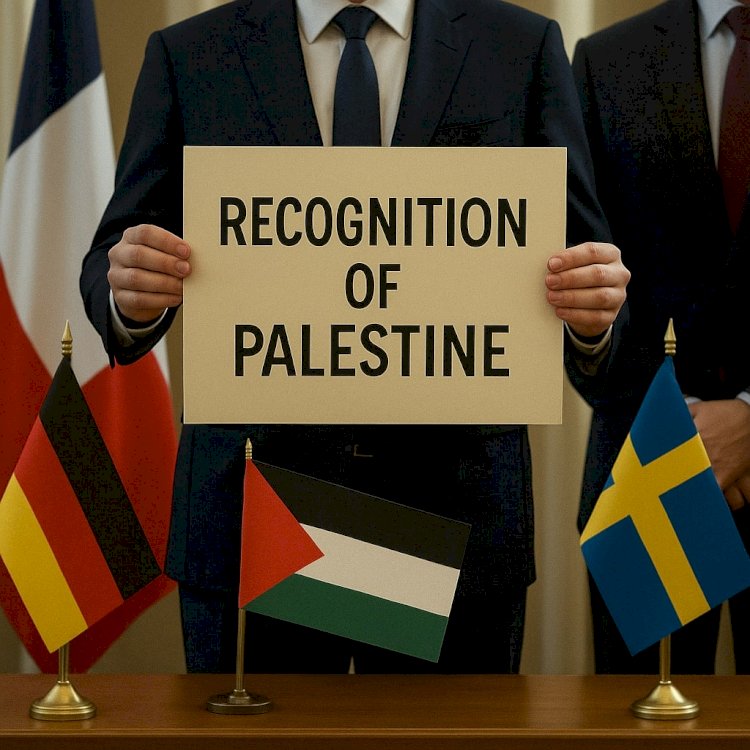A Diplomatic Shift: Several Western Nations Extend Recognition to Palestine

September 21, 2025 — In a development that could reshape the contours of Middle East diplomacy, four Western countries — the United Kingdom, Canada, Australia, and Portugal — have formally recognised the State of Palestine. The coordinated announcements, delivered just days before the United Nations General Assembly convenes in New York, represent one of the most significant policy changes in decades among close allies of the United States.
A Break With the Past
Until now, many Western governments had resisted calls to acknowledge Palestinian statehood, preferring to tie recognition to the outcome of direct negotiations with Israel. The latest decision signals mounting frustration with the stalled peace process, ongoing violence in Gaza, and the expansion of Israeli settlements.
By recognising Palestine, these governments argue they are seeking to revive momentum for a two-state solution and to demonstrate solidarity with international demands for justice and accountability.
Strong Reactions
Israel immediately rejected the decisions, calling them unjustified and dangerous. Officials in Jerusalem warned that such moves risk emboldening extremist groups and undermining prospects for genuine dialogue.
On the other side, Palestinian leaders hailed the recognitions as a “historic turning point.” They argue that the move underscores their legitimacy on the world stage and strengthens their hand in pursuing independence through diplomatic channels.
Wider Global Context
Well over a hundred countries — largely across Asia, Africa, and Latin America — had already recognised Palestine prior to this announcement. What makes this moment significant is that long-standing allies of Washington are now breaking ranks, signalling that support for the Palestinian cause is no longer confined to the Global South.
In Europe, momentum appears to be building. Portugal has already joined the wave, and others such as France, Luxembourg, and Malta are openly considering similar steps. Analysts say more governments may follow in the coming months, particularly if pressure mounts during UN debates.
The Road Ahead
The immediate impact of recognition is largely symbolic, as it does not resolve key disputes over borders, refugees, or the status of Jerusalem. Yet symbolically, it represents a dramatic shift in tone and may alter how negotiations are framed in international forums.
Some of the recognising governments have also set out expectations for the Palestinian Authority, including commitments to democratic governance and a clear renunciation of violence. At the same time, the announcements place new pressure on Israel, which now faces the prospect of greater diplomatic isolation if the trend continues.
The recognition of Palestine by the UK, Canada, Australia, and Portugal reflects a new phase in international engagement with the Israeli-Palestinian conflict. It may not bring immediate change on the ground, but it sends a powerful message: the patience of key world powers with the current impasse is wearing thin, and the global push for a two-state solution is gaining new momentum.

 content-team
content-team 


















